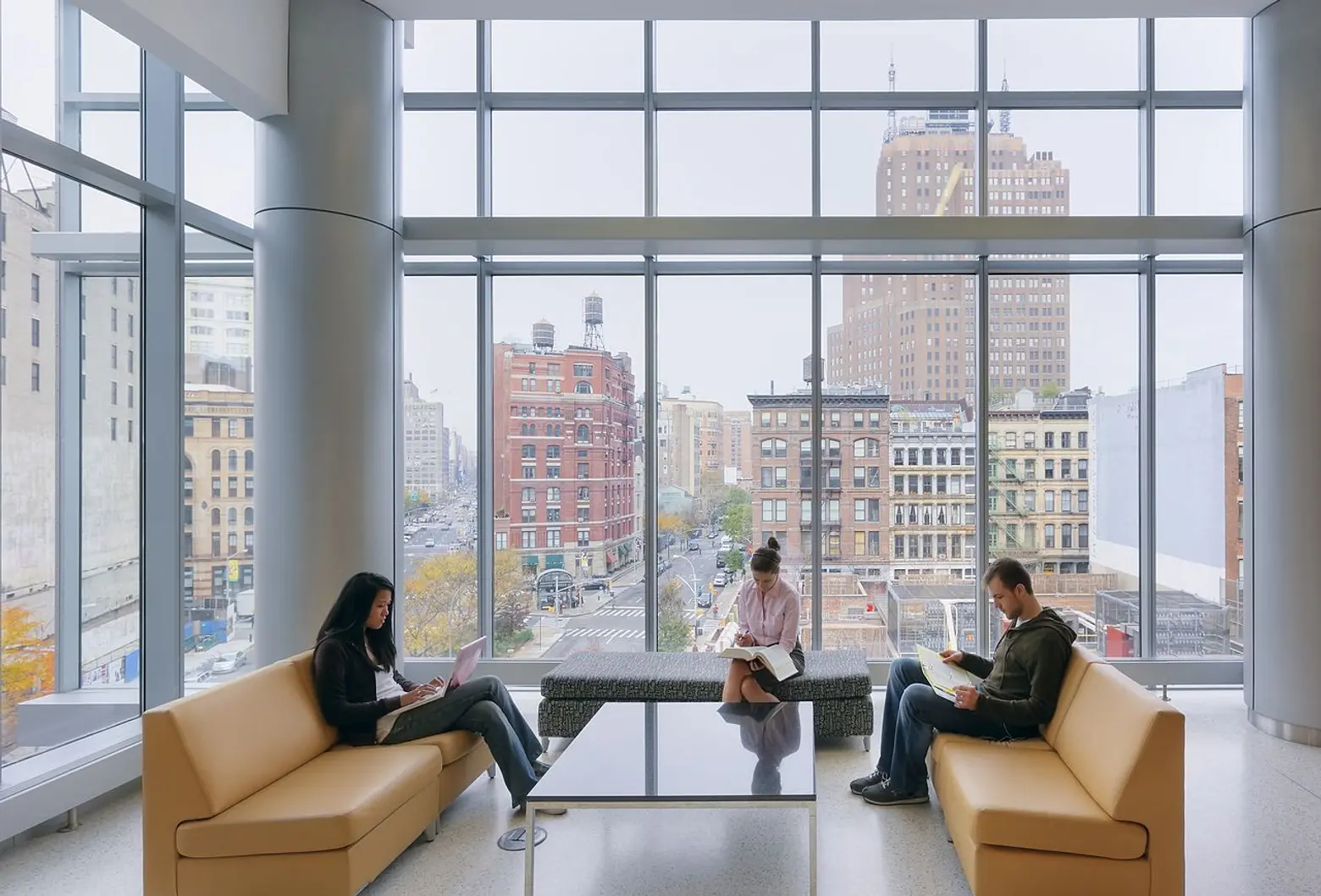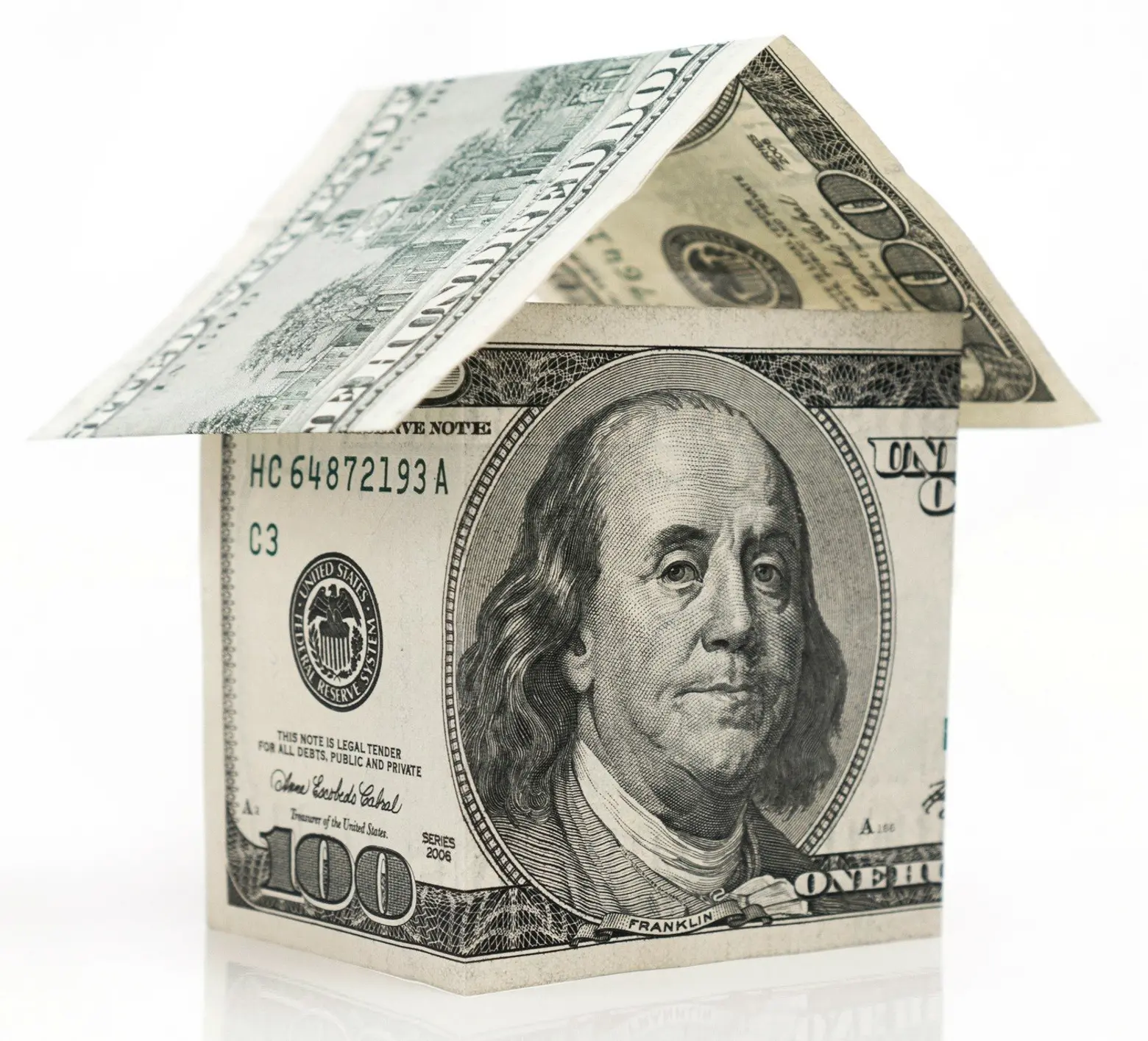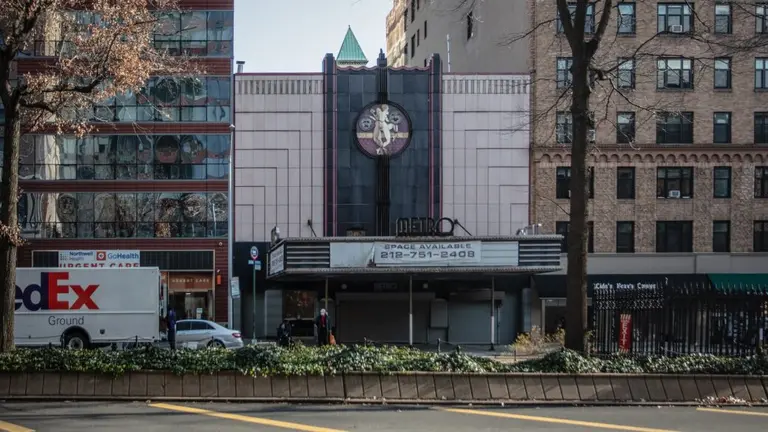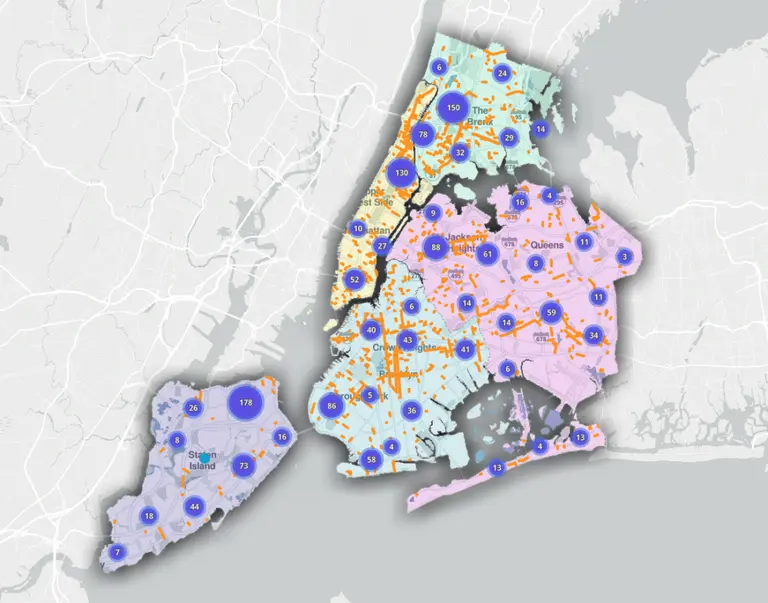An insider’s guide for first-time homebuyers in NYC

Photo via New York Law School/Flickr
6sqft’s ongoing series Apartment Living 101 is aimed at helping New Yorkers navigate the challenges of creating a happy home in the big city. This week, Corcoran realtor Alison McQueen shares her personal guide for first-time homebuyers in NYC.
Many first-time homebuyers in NYC are doubtful they’ll find a great place within their budget, but every single client I’ve worked with has closed on a home, and they say buying was one of the best decisions they ever made. To make this dream a reality, you’ll want a clear understanding of your finances and how much you’d like to spend; the top five things you want in a home; and a sense of your preferred neighborhoods based on potential commute, area amenities; and ideal budget. Sound overwhelming? That’s where a team of professionals comes in, including a real estate agent, real estate attorney, and home inspector. The best way to enter the purchase process is as an informed consumer, as you’ll have an easier time targeting and getting what you want. To make the process a bit easier, I’ve put together a handy list of the key things to consider when embarking on the purchase path in New York City.
 Photo via CarlMattone1 Azure Penthouse celebrations via photopin (license)
Photo via CarlMattone1 Azure Penthouse celebrations via photopin (license)
Give yourself a primer
Going to open houses is a great way to become familiar with the NYC real estate market. Attending open houses doesn’t cost a penny, and it can be a fun way to explore what you really want. Visit sites like CityRealty.com. Enter your basic criteria, such as price, number of bedrooms, and preferred neighborhoods. See which listings advertise upcoming open houses. You can show up anytime during the scheduled open house.
One of my clients visited open houses in Prospect Heights for a few months. She began to intuit which apartments were overpriced and which would attract bidding wars. This allowed her to focus on apartments that were likely to have flexibility in price.

Photo via WNYC/Flickr
Find a real estate agent who works for you
There are many talented, transparent real estate agents who want to help you to secure your dream home. Find an agent who feels trustworthy and behaves like an advocate. Personally, my background is in social work and research, so I have a passion for linking people to resources, helping them get what they want, and making the road as smooth as possible. I love helping people navigate the market to buy property. There are many agents who feel this way, so if you don’t feel like you have the best agent ever, find a new agent.
If you choose to work with a real estate agent who specializes in working with buyers, your agent will guide you to avoid potential pitfalls. They’ll help you start off on the right foot, and teach you about different property types and transaction basics. If you don’t know where to begin, however, your real estate agent will help you brainstorm and narrow your search. You can discuss which neighborhoods offer value and are a great match for your lifestyle. Each NYC neighborhood has its own little niche market and character.
A real estate agent is your confidant and point person. You’ll share your financial information and hopes with them. They’ll work with you to plan a realistic goal and timeline. They’ll also connect you with other professionals who will make sure you’re choosing a sound investment. A great real estate agent will know how to tweak your offer packages to help you beat competition and winning bidding wars, which are common place in the NYC market.
Start the mortgage approval process
There’s no harm in talking to a mortgage lender now. Even if you don’t feel entirely ready to take the purchase plunge, going through the mortgage approval process is a valuable experience. The process is free and doesn’t affect your credit. It will give you a sense of what you’re eligible for and how to further prepare, if necessary. Some of my clients are surprised by how much they are already eligible to borrow.
In order to complete the approval – technically pre-approval – process, lenders require the following from salaried employees: two most recent paystubs; last year’s federal tax returns; most recent statements for all bank, investment, and retirement accounts; and authorization to run your credit. For self-employed borrowers it can vary depending on how you file your income (i.e., if you have your own corporation or if you’re filing as schedule C). This pre-approval process takes a few business days. Plan ahead, because a lender’s official endorsement is required for you to make offers on property.
Your real estate agent can recommend lenders who source loans from various banks, which allows you to shop for the best rate. Or, you could choose to work with someone at your current bank. He might give you a preferred rate. Just make sure your lender is based in NYC. In a competitive bidding situation (many people making offers on a single property), a pre-approval letter from a NYC lender is much stronger than a pre-approval letter from a lender based elsewhere in the country. This is because the NYC market is very unique – we have special property types and the purchase process moves very quickly here. You’ll be at a serious disadvantage if you fall in love with a co-op apartment and your lender has never even heard of a co-op. In this case you’ll have trouble getting through the loan process, that is, if you get someone to accept your offer. Sellers’ real estate agents vet your lenders before accepting your offer, in an effort to assess your risk of not making it through the purchase.
 Photo © SalFalko/Flickr
Photo © SalFalko/Flickr
Choose a NYC-based real estate attorney
Find a real estate attorney based in the five boroughs, preferably one with a good bedside manner who is top in their field. Your agent can provide several attorneys to choose from. I understand you don’t want to upset your uncle who is a personal injury attorney in Westchester by declining his offer to represent you in your home purchase, but you really need a real estate attorney who lives, breathes, and sleeps NYC real estate. This is because once your offer has been accepted, everything moves at lightning speed. Your attorney will negotiate your sale contract in a day or two. This outlines the terms of your sale and legally binds you to the seller. Your attorney also investigates everything there is to know about the property. If you choose wisely, your attorney will probably be familiar with the building in which you’re purchasing, which speeds up their work. Their ability to move quickly puts you at a strong advantage against the competition, who, until you’ve signed a contract, can swoop in and oust you.

Photo © Daxiao Productions – Fotolio
Plan ahead when moving in
It takes at least one to three months to close on a home in NYC. Once you’ve found a place you adore and the seller has accepted your offer, you’re ready to move toward signing a contract. Your real estate agent acts as your liaison to make sure the proper terms are communicated to your real estate attorney.
Your attorney negotiates the contract based on your offered terms. Furthermore, if you’re buying a house, for example, your attorney will research whether there are any liens on the property. If you’re buying an apartment in a condo or co-op building, your attorney will investigate the building. She’ll examine the building’s financial health and whether it’s managed efficiently. This research, or due diligence, process takes about a week.
During the due diligence period, you should have a home inspection. Your real estate agent can recommend home inspectors and arrange a time for the inspection. Your agent should be present for the inspection to ask questions you may not think to ask. The home inspector generates a report and sends it to you in a day or so. If there are no major issues, you simply wait for the attorney to finish her research. If something major comes up during the inspection, you should discuss this with your real estate agent. She can propose solutions that are in line with your goals and comfort level. If the seller agrees to fix something, your agent will make certain the attorney puts this into your contract.
If the attorney’s research hasn’t turned up anything unsavory and your inspection went well, you’ll sign the sale contract and pay 10 percent of the purchase price, which serves as a deposit. It sits in escrow, a third-party account. The seller countersigns the contract and the property is officially off-market. No other buyers can outbid you at this point.
Next, your bank appraises the property and underwrites your loan. If you’re purchasing a co-op, you’ll submit a co-op board application and go through their interview process. Your real estate agent makes sure your application is perfect and you’re prepared for the interview. This board approval and underwriting process can take 30 or more days.
Once your loan has been cleared by underwriting and you’ve made it through the board, you’re ready to close. That is, everyone meets to help you navigate and sign ownership documents, and you collect your keys. At this time, the purchase price balance is due. You’ll also pay your attorney and lender at the closing table.
+++
 Alison McQueen is a psychologist turned real estate salesperson. She has an extensive background in client advocacy, education, and research — skills that have translated well into the NYC real estate industry. Alison is known for getting difficult transactions to the closing table. She also guides buyers through competitive markets to secure their dream homes. As such, she is recognized as one of Corcoran Park Slope’s top ten agents.
Alison McQueen is a psychologist turned real estate salesperson. She has an extensive background in client advocacy, education, and research — skills that have translated well into the NYC real estate industry. Alison is known for getting difficult transactions to the closing table. She also guides buyers through competitive markets to secure their dream homes. As such, she is recognized as one of Corcoran Park Slope’s top ten agents.
Alison cares deeply about helping clients achieve their goals. In addition to her work in the field, Alison volunteers as an educator at the Brooklyn Brainery, where she teaches monthly classes to first-time homebuyers.
 Via
Via 

























